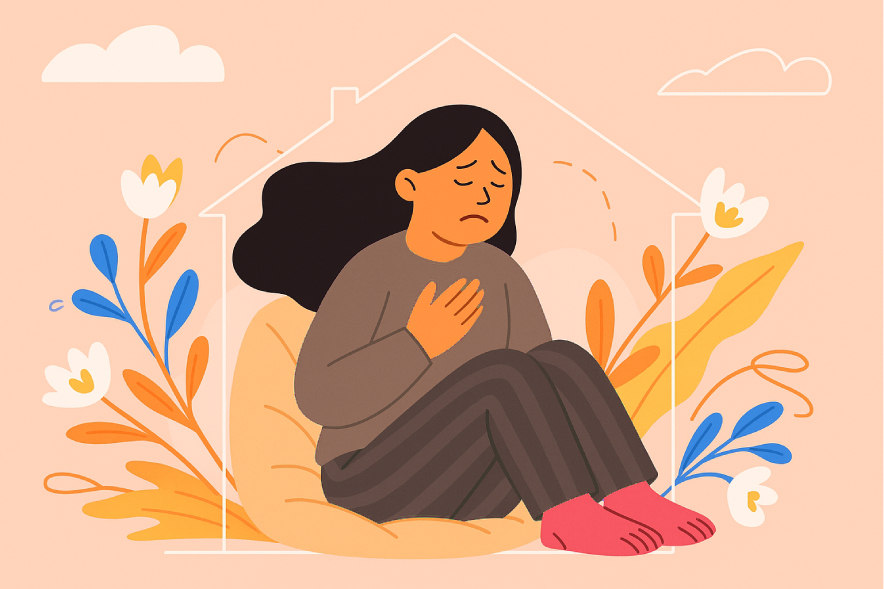If that sounds familiar, you might be dealing with anxious attachment. And no, it doesn’t mean you’re “too emotional” or “clingy.” It just means your brain gets a little too nervous when it comes to love and connection. Which, honestly, a lot of us can relate to.
So what is anxious attachment anyway?
Let’s skip the therapy jargon and keep it real. Anxious attachment is one of the ways people react in relationships based on how they grew up and what they’ve been through. It’s like your emotional settings got programmed early on, especially if love and affection felt a little unpredictable.
People with anxious attachment tend to worry about whether others really like them or might leave them. And they often feel like they need constant reassurance — not because they’re needy, but because their emotional alarm system goes off faster than others'.
Where it shows up in everyday life
Not just in romantic stuff either — anxious attachment can sneak into all kinds of relationships. Work friends, family, group chats where no one answers your meme… it’s all fair game.
Text anxiety: Waiting on a reply can feel like torture. The longer it takes, the more your brain creates wild plots: “They’re ghosting me. They hate me. They moved to another country.”
Overanalyzing everything: That one-word response? Probably meant they’re mad. That “K”? Definitely a relationship-ending message.
Trying to ‘fix’ things before they break: If you sense the slightest bit of distance, you start panicking and go into damage control mode — calling, texting, over-apologizing for things you didn’t even do.
People-pleasing like it’s a full-time job: You want to be liked so badly that you end up bending over backwards just to avoid conflict or rejection. You might even pretend to be chill when you’re actually spiraling inside.
Where it comes from
Most of this starts early. Studies show that kids who don’t consistently feel safe or cared for can develop anxious attachment styles later in life. If a parent or caregiver was hot-and-cold — super loving one moment, distant the next — your brain learned that love isn’t always guaranteed.
So now, when someone you care about pulls away or gets quiet, your nervous system freaks out like, “Here we go again.”
Psychologist Mary Ainsworth did one of the OG studies on this in the 1970s. She observed how toddlers reacted when their parents left the room and came back. The anxiously attached kids freaked out when the parent left and weren’t easily comforted when they returned. Basically, even toddlers were like, “Can I trust you or not?”
Real talk: it’s exhausting
It’s not just a “quirk.” Anxious attachment can mess with your peace of mind big time.
You spend hours trying to figure out what someone really meant by their emoji. You replay conversations like they’re courtroom transcripts. You feel on edge when you haven’t heard from someone in a while, and it can suck the joy out of even the happiest relationships.
And the worst part? It can make you stay in situations where you’re barely being treated right — just because the moments of closeness feel so good, even if they’re rare. Like taking one sip of water and pretending you’re hydrated.
Real-life example (you might relate)
Let’s say you’re seeing someone new. They text you “Good morning ☺️” three days in a row and it feels like magic. But then one morning, no text. Cue the mental chaos. Are they losing interest? Did they meet someone else? Should you text first or will that seem desperate?
Meanwhile, they’re probably just in a meeting or spilled coffee on their phone or — wild idea — sleeping in. But your brain doesn’t care. It’s already rewriting the whole relationship.
So what helps?
Okay, so here’s the good news: You can work with this. You’re not doomed to be the person overthinking every message forever.
Start with awareness: Just knowing you have an anxious attachment style helps. When the panic starts to bubble up, you can pause and go, “Okay, this is my brain reacting. Not necessarily reality.”
Set boundaries — even with yourself: Like, “I’m not going to check my phone 20 times in the next hour.” Or “I won’t spiral until I’ve had lunch.” (Low blood sugar and emotional spirals go great together, right?)
Say what you need: This one’s huge. Instead of dropping hints or hoping someone just “gets it,” try actually saying what would make you feel secure. “Hey, I really appreciate it when you check in during the day” isn’t needy. It’s adult.
Hang out with people who feel safe: Ever notice how some people just calm your nervous system down? Keep them close. People who are consistent and kind without the drama — that’s the good stuff.
Therapy helps too: Especially if this stuff goes deep. A therapist can help you untangle the mess and stop blaming yourself for things that aren’t your fault.
You’re not “too much”
That feeling of being “too much” or “too sensitive”? That’s the anxious part talking. You’re not too much. You’re someone who values connection and just wants to feel secure in it. That’s not a flaw. That’s being human.So next time you feel that familiar flutter of panic — when someone pulls away, or doesn’t text back right away — take a breath. Ask yourself what’s real, and what’s just old fear dressed up as fact. You deserve love that doesn’t feel like a guessing game.
And yes, that includes texting someone first. Just maybe do it after chocolate and a nap. Because self-care.
